Researches’ Night at ICRC: Live broadcast on Prima TV, controlling human muscles through a button, and stretching heart cells
A scientist as a boring nerd locked away among test tubes and beakers? Well, not at all! Science can be a real adventure. For the sixth year in a row, the Night of Scientists events have been trying to dispel myths about scientists. Hundreds of scientific institutions across the country participate to show visitors how science can be not only interesting and beneficial but, above all, fun.
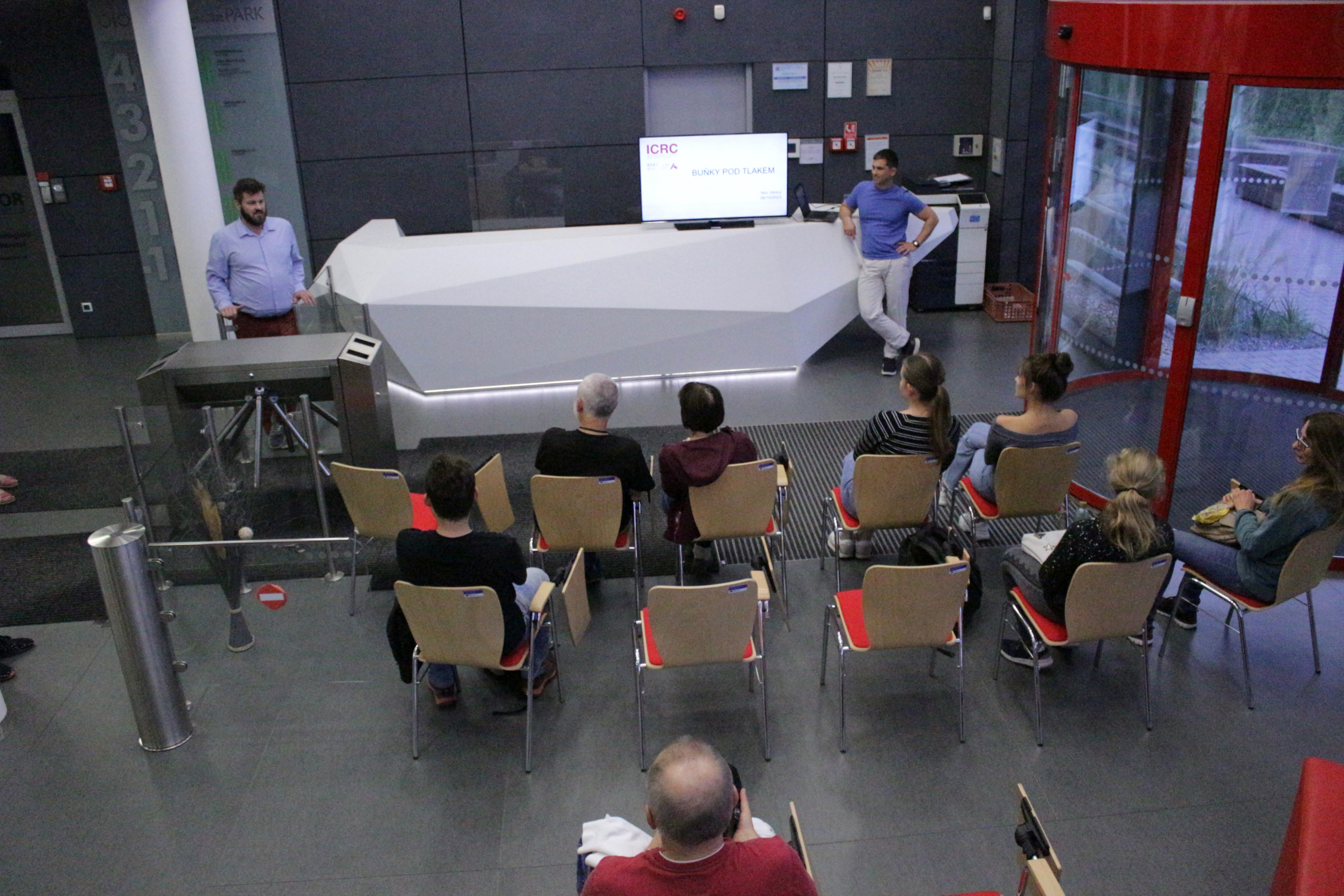
This year, the Researches’ Night program revolved around the theme of Secrets, and our International Clinical Research Center couldn’t be absent. We guided the interested participants through places that an ordinary people wouldn’t typically visit and showcased the best of our work.
In the ICRC laboratories, there was a guided tour titled “The Secrets of Brain Stimulation.” What can science achieve today? For example, it can non-invasively stimulate central and peripheral nerves, meaning it can control one of the peripheral nerves without disrupting the body’s surface. In practice, this could remotely move a finger or tongue. And what’s the purpose of all this? Research is being conducted with the aim of treating not only neurological conditions like epilepsy but also conditions like obstructive sleep apnea. In the future, it may be possible to use this method to eliminate the symptoms of these diseases.
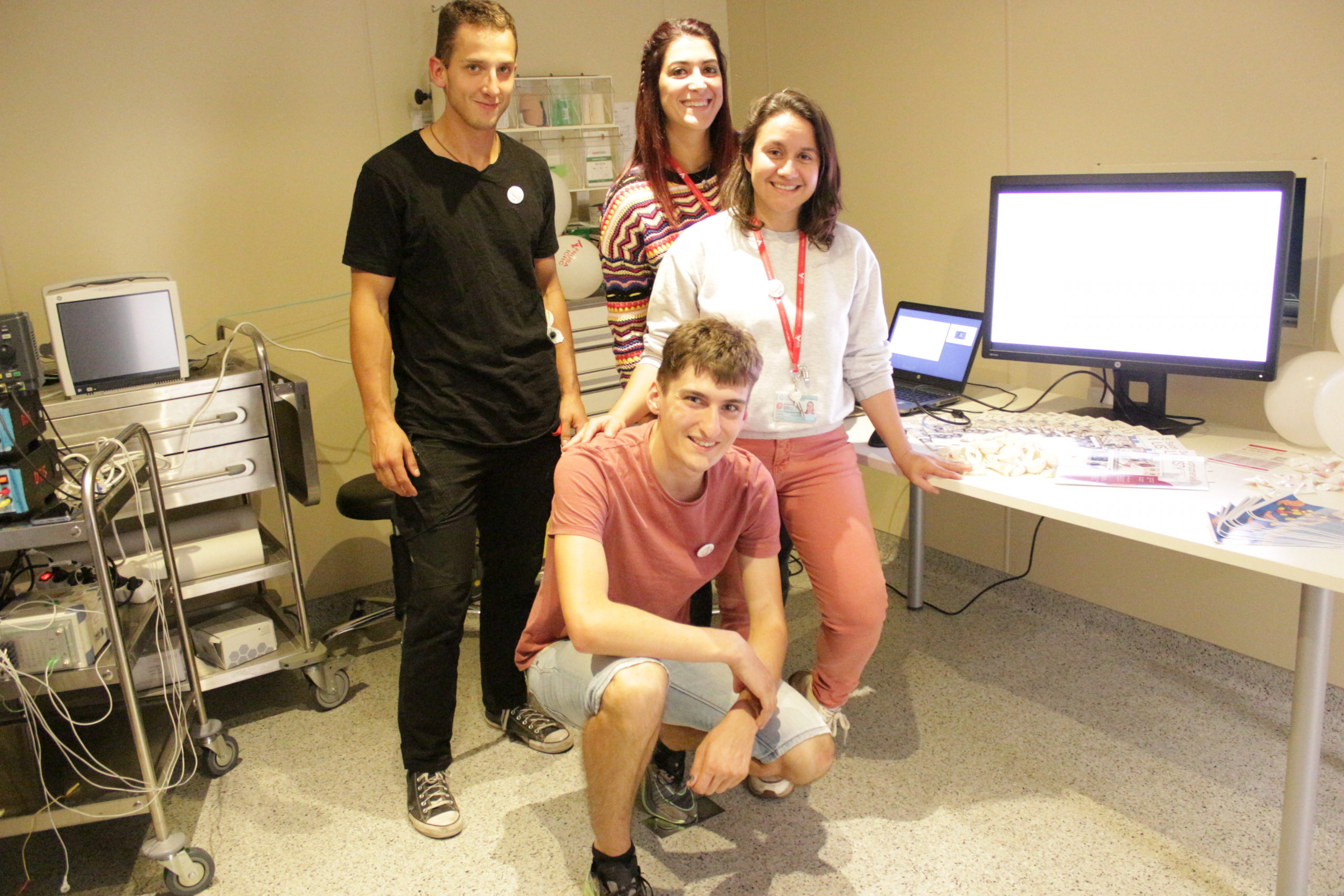
Team of the “Immune Adventure” tour
Enthusiasts of nocturnal exploration were also guided by scientific teams at the Biopark. There, the Center for Translational Medicine even prepared two tours. In the first one, titled “Immune Adventure: Uncover the Secrets of Your Inner Shield,” our scientists revealed to visitors how and with what our body can protect itself.
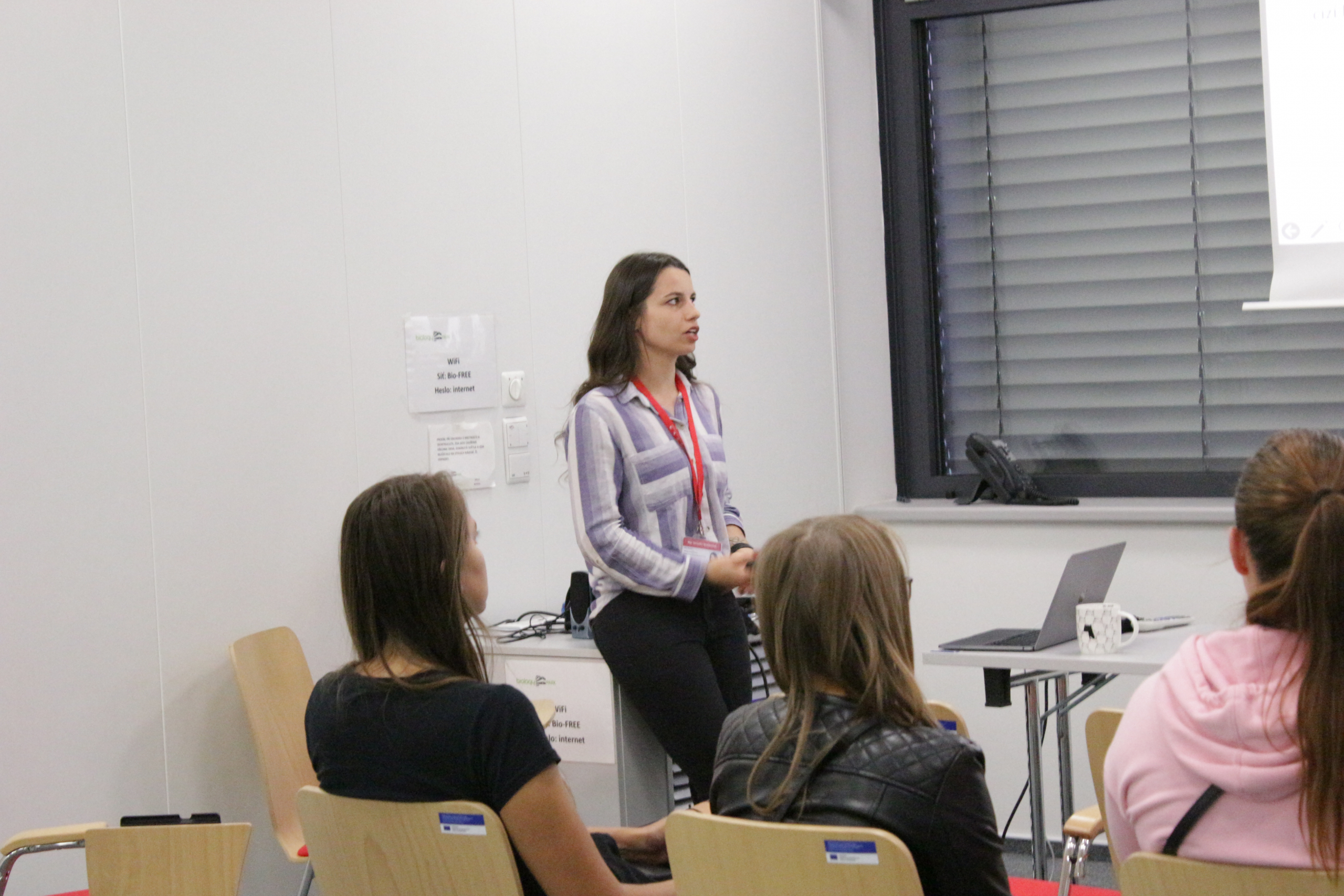
Mgr. Veronika Bosáková
And also, what happens in the body when the immune system turns against ourselves. They even showcased a model of the intestines; testing on it in the future could contribute to the treatment of diseases such as Crohn’s disease. “When we test new drugs, we don’t have to use patients or animals,” explained researcher Veronika Bosáková to the visitors.
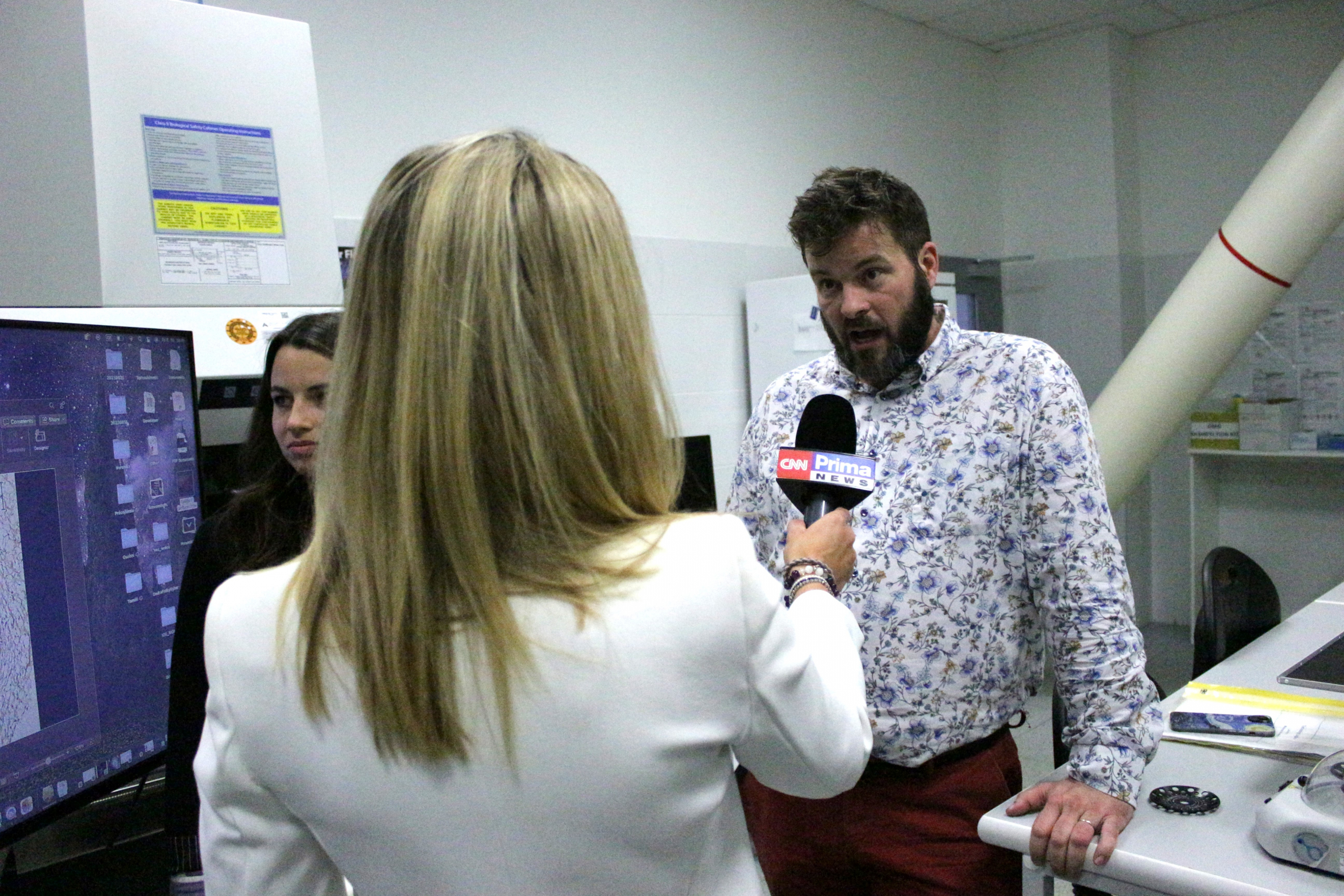
Mgr. Jan Frič, Ph.D.
In the “Cells Under Pressure” program, visitors learned from representatives of the Mechanobiology in Disease team how cells perceive and respond to mechanical stimuli. Visitors were particularly intrigued by how armed with this information gathered from laboratory dishes, we can attempt to improve heart function after a heart attack or halt the spread of breast cancer. “By stretching heart cells in the dish, we model increased load after myocardial infarction to understand how to encourage the heart to endure longer,” summarized researcher Vladimír Vinarský.
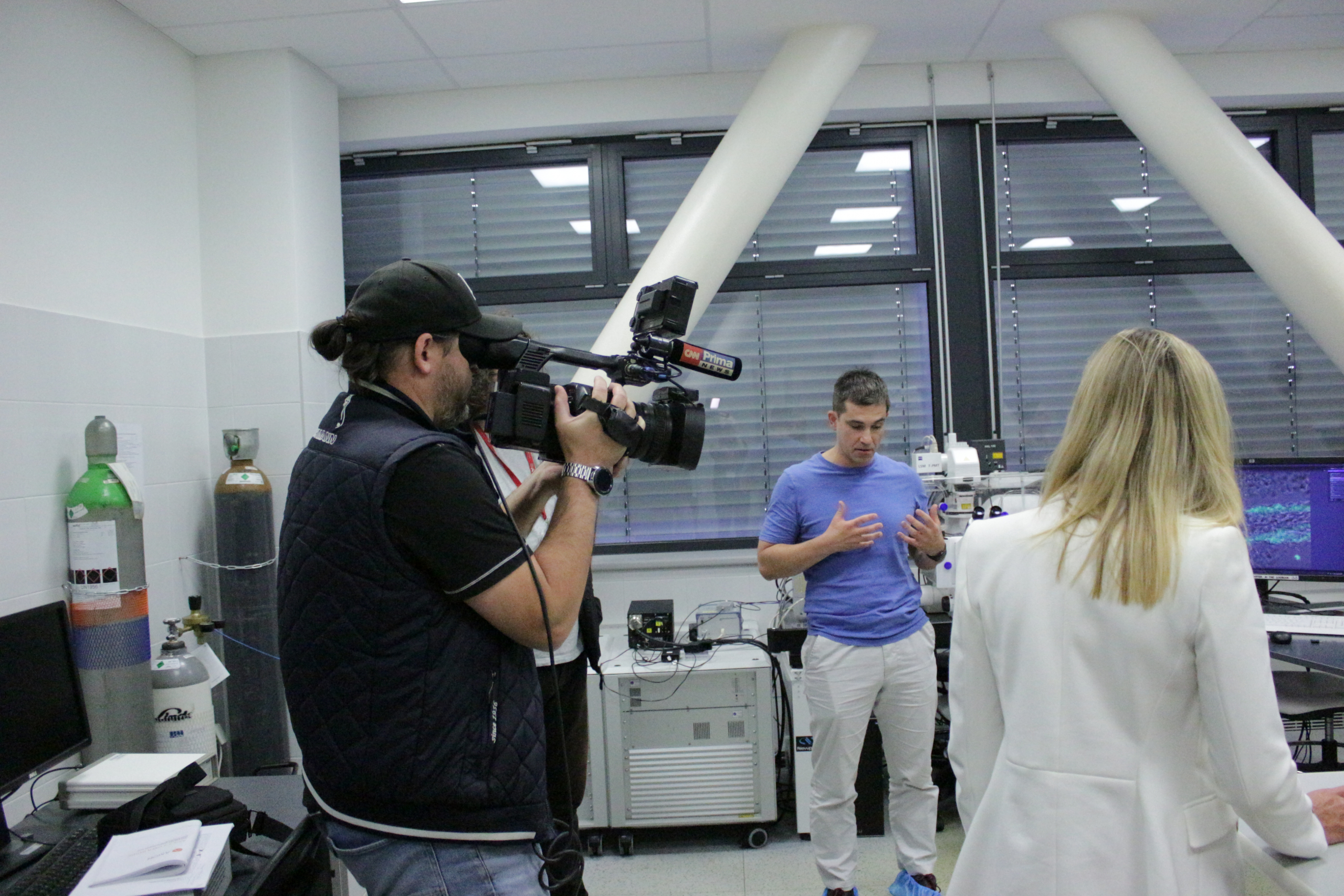
Mgr. Bc. Vladimír Vinarský, Ph.D.
In summary, the Night of Scientists event was a resounding success! We garnered media attention, and just before the event kicked off, you could catch a live segment about us on CNN Prima News.
We had over 150 science and knowledge enthusiasts visit us, including those who are considering joining one of our teams as part of their professional journey. We wish them the best of luck and hope to see them on the premises of our International Center for Clinical Research in a few years.
The mission of Researches’ Night is to show the public that science is not a boring topic. On one day each year, scientific facilities across Europe open their doors to the public in the evening and night, offering guided tours, popular educational lectures, experiments, and workshops, all free of charge. Did you miss our program this year? Follow us on social media, and you’ll be the first to know when Night of Scientists 2024 is scheduled!
We want to express our gratitude to all who participated in Night of Scientists at ICRC and to everyone who visited us on Friday evening.

